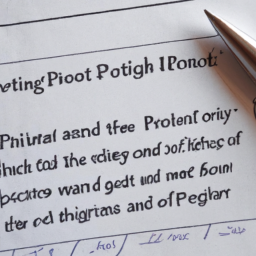Indexed universal life (IUL) insurance is a type of permanent life insurance that provides a death benefit and a cash value account tied to a market index. This means that the cash value of your policy is linked to the performance of the index, which can potentially lead to higher returns than other types of life insurance. However, it also means that your cash value can decrease if the index performs poorly.
One of the main benefit of IUL insurance is its tax advantages. The cash value of your policy grows tax-deferred, which means you don't have to pay taxes on any gains until you withdraw them. Additionally, if you take out a loan against your policy, the loan is not subject to income tax.
However, IUL insurance also has a number of risks that need to be taken into account before investing. One of the biggest risks is the high fees associated with these policies. IUL policies often have high upfront costs and ongoing fees, which can significantly reduce your returns over time. It's important to carefully review the fees associated with any IUL policy before investing.
Another risk of IUL insurance is the complexity of these policies. Because they are tied to a market index, the cash value of your policy can be affected by a variety of factors, including market volatility and changes to the underlying index. This can make it difficult to understand exactly how much your policy is worth at any given time.
If you're considering investing in IUL insurance, it's important to do your research and carefully compare policies from different providers. Look for policies with lower fees and a strong track record of performance. Additionally, consider working with a financial advisor who can help you navigate the complexities of these policies and make informed investment decisions.
Universal life insurance is a similar type of permanent life insurance that also offers a cash value component. However, unlike IUL insurance, the cash value of a universal life policy is not tied to a market index. Instead, it earns a fixed interest rate that is set by the insurance company.
On the surface, universal life insurance may seem like a good investment. It offers lifelong coverage and the flexibility to adjust your premiums and death benefit over time. However, like IUL insurance, it also has a number of risks that need to be carefully considered before investing.
One of the main risks of universal life insurance is the potential for policy lapses. Because these policies are flexible, you can adjust your premiums and death benefit over time. However, if you don't pay enough in premiums, your policy could lapse and you could lose your coverage.
Another risk of universal life insurance is the potential for high fees. Like IUL insurance, these policies can have high upfront costs and ongoing fees that can significantly reduce your returns over time.
If you're considering investing in universal life insurance, it's important to carefully review the policy terms and fees before making a decision. Look for policies with lower fees and a strong track record of performance. Additionally, consider working with a financial advisor who can help you navigate the complexities of these policies and make informed investment decisions.
In recent years, there has been growing concern about the high fees associated with some investment funds. According to a recent report, the most expensive investment funds charge almost seven times more than the average, which can result in poor returns for investors.
This is particularly concerning for investors who are looking for long-term growth and stability. High fees can significantly reduce your returns over time, which can make it more difficult to achieve your investment goals.
If you're investing in mutual funds or other types of investment funds, it's important to carefully review the fees associated with these funds before making a decision. Look for funds with lower fees and a strong track record of performance. Additionally, consider working with a financial advisor who can help you identify high-quality investment opportunities and minimize your fees.
Finally, if you're considering investing in IUL insurance, it's important to understand exactly what you're getting into. IUL insurance is a complex type of investment that requires careful consideration and expert guidance. However, for investors who are willing to take on the risks and understand the complexities of these policies, IUL insurance can offer a number of benefit, including tax advantages and the potential for higher returns.
Overall, if you're considering investing in IUL insurance or any other type of investment, it's important to do your research and carefully consider the risks and benefit before making a decision. With the right guidance and a solid investment strategy, you can achieve your financial goals and build a secure future for yourself and your loved ones.
